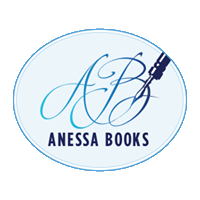Twice a day your creativity goes into overdrive, and you may not be taking advantage of it.

The moment you wake up in the morning and just before you go to sleep at night your brain is sleepy and pliable and, most importantly, creative. This state is a scientifically proven phenomenon called hypnagogia.
According to Wikipedia: “Hypnagogic cognition, in comparison with that of normal, alert wakefulness, is characterized by heightened suggestibility, illogic and a fluid association of ideas. … Many artists, writers, scientists and inventors — including Beethoven, Richard Wagner, Walter Scott, Salvador Dali… [and others] — have credited hypnagogia and related states [i.e. hypnopompia — the same state, only when you are falling asleep] with enhancing their creativity.”
It is for this reason that writers are encouraged to write “morning pages.” But it’s not enough to simply sit down and write after you’ve had your coffee and read the news. If you do that you will have missed your moment. No, you need to write the moment you wake up, before you even get out of bed while your brain is still sleep befuddled.
The same holds true for writing at night. After a long day, your mind is ready for a little down time and, strangely enough, when the logical side of your brain calls it quit for the day, it gives your creative brain space to roam and stretch itself.
Try keeping a notebook and pen next to your bed and write first thing when you wake up, and last thing before you go to sleep. It doesn’t matter what you write, in fact, the more free form it is the better.
I can’t tell you how many plot holes I’ve filled this way.
I’ll be writing about my day before going to sleep — what I did and what I didn’t but wish I had. Suddenly, there it will be — the answer to the problem I hadn’t been able to figure out. It might be that one thing that, in the back of my mind, wasn’t quite right, but I didn’t know what was wrong. It might be just how my character should behave, what they shouldn’t have done, or even better, that one tiny character trait that changes everything. My protagonist’s goal will enter my mind and from my pen will flow what could get in the way of them attaining it. The villain’s motivations will suddenly be there, answering all my questions. The inspiration will hit and I’ll quickly write down all my ideas, all my fixes, a list of things to change. In short, it is at that time, when my mind and body are relaxed and ready for sleep, that I am at my most creative.
So, I encourage you to empty your thoughts onto the page so that your creative mind is free to do what it does — there are no emails to answer, no meeting to attend, or reports to write. It’s just you and your thoughts working in harmony.
Try it. Write and see what happens. And don’t worry if the magic doesn’t happen right away as it doesn’t happen every time you write. Just know that when your mind is clear and loosened from all your worries and inhibitions, your creativity will do its thing.
